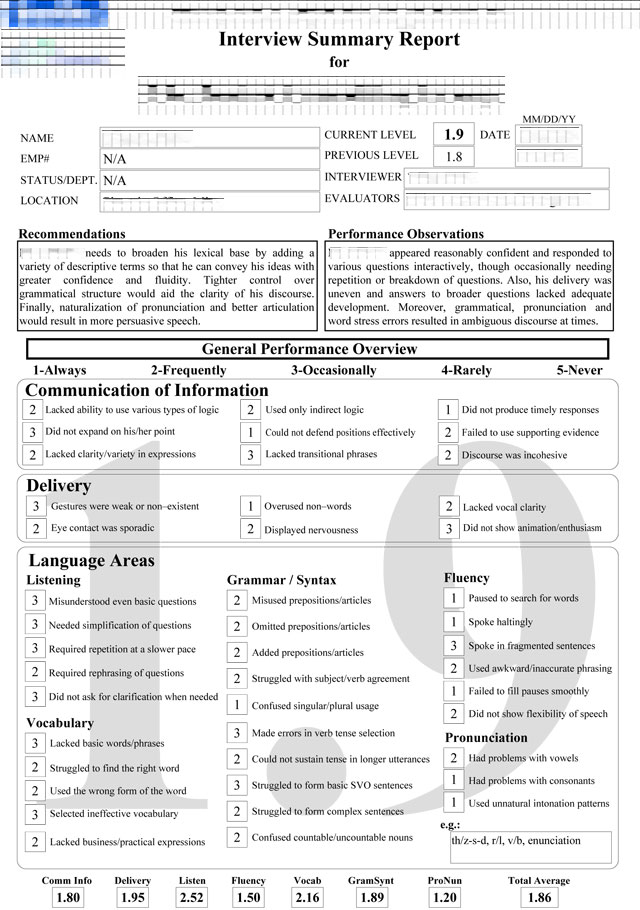The G.B.C. test (previously FSI)
If your student works as a consultant, in an investment bank or the foreign service, chances are that they are required to take the GBC test. This test was previously called "FSI" and many people still call it that. We will use the two terms so that they are equivalent to you.
We have our own G.B.C. course with practice questions and lessons on test strategy. We are the only English school (that I know of) that teaches to and specialises in this test.
About the test
The test is an interview test. It takes 15 - 20 minutes. It is divided into 4 sections: about their life or a topic they're familiar with; work; complex topics (politics, the economy, etc.); abstract questions. The test used to be more of an interview-style where interviewers waited for students to give answers. We have been receiving feedback from students that they've had tests that were more conversational too. For these types of interviews, interviewers will ask follow-up questions and interject with a new/follow-up question if a student pauses for too long without a transitional phrase to show they are not finished. The tests are designed to find the limit of the student's abilities, so please keep preparing them for different scenarios by making students aware of the possibilities. Answers are recorded and then evaluated by two people and the results given a couple of weeks later to the student. The test is adminstered by Berlitz. Test takers are graded out of five using the same system as we do, outlined here, on very diverse criteria (encompassing communication, logic, confidence, vocabulary, fluency, pronunciation, grammar and so on). A sample report is included below for your reference.

Students who use this test are also asked to share their reports with us. Please ask for and upload student test results if possible. Also add most recent scores to assessments. The test is pretty harsh, and the only assured way to get a high score is to be good at English. That is to say, there are not many strategies that can enable a person to get a high score without genuinely having decent language skills (unlike a test like TOEIC).
NB: The averages do not make sense and are probably some kind of computed wieghted average. Nobody knows...
Test strategies
There are some quick wins for student scores to be had in terms of the structure of answers, adding extra information, not using non-words (like "um" and "ahh...". Side note: come down on people doing this, since it is unconscious and can easily be prevented), expanding on vocabulary (rather than saying the first word that comes to mind) and saying what you can rather than what you want to (essentially, lie if it is something easier for you to say!). Our FSI/GBC course covers every aspect of the test systematically and enables students to do mock tests and practice their answers.
Things that are to be discouraged:
- memorized and recited answers — it's always easy to tell when someone is doing this, and they will lose points on fluency and naturalness;
- non-word sounds (as mentioned above);
- weak structure and logic;
- lack of elaboration (i.e. one sentence answers that answer the question, but don't demonstrate communication skills);
- giving too much information (the student is expected to gauge the level of interest the interviewer is showing and change course if necessary);
- lack of imagination (i.e. answering the words of the question, but not the spirit of it);
- lack of enthusiam (i.e. tone);
- bad intonation, pronunciation and pacing etc.
Make sure you already read these articles on the blog:
- All you should know about the G.B.C. test
- Understanding G.B.C. scores
- Difference between the GBC interview test and a typical interview
There are also a lot of sample answers for you to get the hang of what is important in the test.